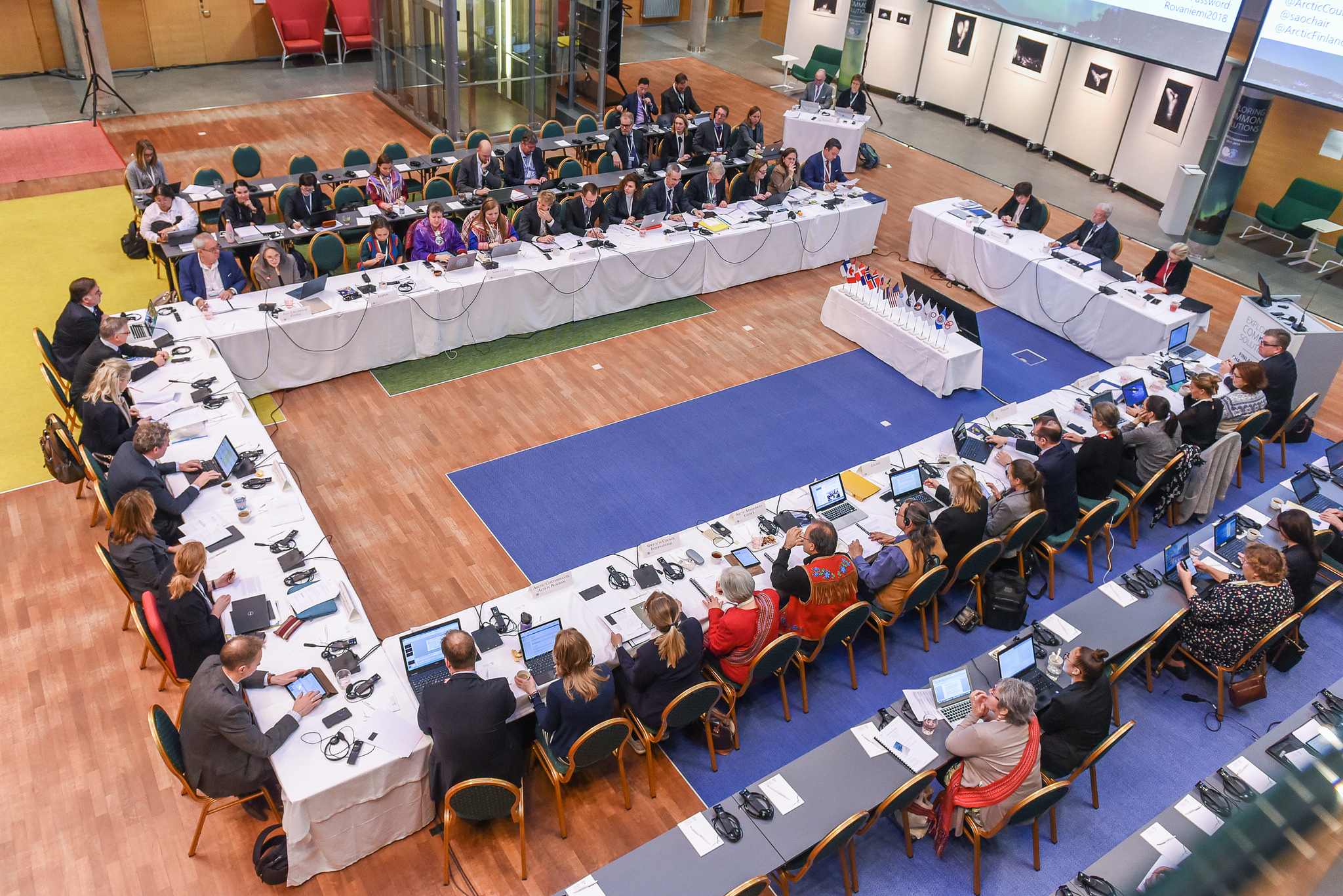Amid climate row, Arctic Council heads toward biennial meeting on a down note
Preparation for the cabinet-level gathering in May has ended in disagreement over a final declaration, and future role for organization.

Disagreement about the impact of rising global temperatures means that preparations for the Arctic Council’s biennial meeting on May 6-7 have ended without an agreement on the wording of a declaration that cabinet officials from the eight member countries will sign when they gather in Rovaniemi, Finland.
The final meeting to prepare for the gathering ended on Thursday after diplomats and senior civil servants from member countries signed off on the work undertaken by the council during the past two years, including projects dealing with education, oil pollution risks, and ocean acidification.
“These are projects that have a real impact on Arctic communities and benefit the people living and working in the Arctic,” said Aleksi Härkönen, the Finnish diplomat who chairs the senior Arctic officials.
However, they council was unable to come to terms on the declaration ministers will sign, due to “differences of opinion about the urgency of addressing climate change,” Harkönën said.
The split, he explained, was between countries that wanted to speed up the work of addressing a changing climate, and countries that were satisfied with current efforts.
While the wording of declarations does not need to be finalized until they are signed — indeed, during the 2017 meeting, climate issues also presented a stumbling block that was not resolved until the last minute — failing to come to a consensus about the council’s position on global warming would result in watered-down statement of what members intend to do to address the issue, say those familiar with the way the council works.
When Finland began its two-year Arctic Council chairmanship in 2017, it was handed the task of completing the work, begun during the previous under the U.S. leadership, of reassessing the council’s structure and the way it does its business. As that work nears its conclusion, a lack of consensus about the council’s position towards global warming, would weaken efforts to finalize the wording of a planned proposal for the future role of the organization.
During its chairmanship, Finland has sought to incorporate the Sustainable Development Goals, a list of 17 areas, such as poverty, social justice and the environment, where the UN would like to see improvements made in by 2030, into the work of the council. Finland has been roundly praised for its efforts to introduce the goals into the work of the council, but some observers now worry that the council would miss an opportunity by not continuing to place an emphasis on them in the coming years.
Härkönen declined to comment on whether the council would admit new observers adding to the list of 30 countries and organisations that currently take part in its work, While he confirmed that the council had received applications for new observers, he said discussions about accepting any of them “would continue.”
Iceland, which assumes the chairmanship of the council after the Rovaniemi meeting has announced that its themes will be: climate and marine issues, people in the Arctic and strengthening the Arctic Council.